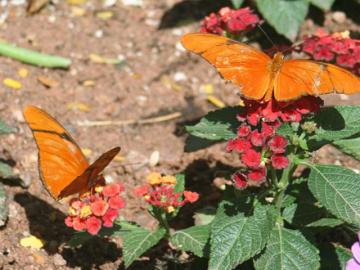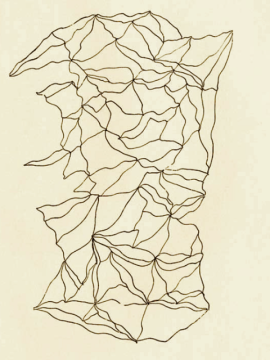Leaving
Grace Quon
The farewell lunch had started on a high note. My friends had done their best, pooling their credits to get us into Stella’s Table. They’d even tried to order real meat for me, but given the price, I’d insisted vat-grown was indistinguishable. Once the small talk and exclamations over food had run out, though, the gaps in conversation began widening. Three of our group had left in the past year, and I knew Lu and Tom were thinking about it too. It was almost a relief when the restaurant’s electricity ration ended, and we headed outside for our final good-byes.
Making my way home, I was hyper-aware this was the last time I’d walk the streets where I’d lived all my life. A mix of languages filled my ears, as people hurried by, eager to escape the oppressive heat. I inhaled the aromas billowing out in clouds from the food carts I passed: barbecue crickets on one corner, seaweed puffs on another. I found myself noting the names of stores, as if to fix them in my memory. There were more empty storefronts every month, each one rapidly covered with layers of graffiti.
My apartment was small enough that you could almost touch the walls when you spread your arms out. Some of my soon-to-be fellow travellers had probably agonised over how to shrink their possessions down to the size of a small suitcase, but it hadn’t taken much thinking on my part. The only sentimental item I included was a photo of my family. It had stood on mom’s nightstand for years before moving to the shelf over my bed after she died. Until I reached my new home, I would at least have a small piece of the old one with me.
My suitcase stood next to the door, a silent reminder that the final countdown to my departure had begun. I’d been cocooned here my whole life; now a new world awaited me. I just had to make it through the remaining hours until tomorrow. I picked up my tablet but was still half-heartedly scrolling through the latest vids when the doorbell chimed. I checked the camera and stiffened when I saw Helen outside. I’d barely let her in before she started trying once again to change my mind.
“How can you leave everything behind like this?” she finally finished, gesturing around her. By ‘everything’, I knew she was including herself, even if she would never say it. We weren’t close as children: she was the perfect daughter, and I was not. But after our parents died, we’d discovered we were more similar than different. It was a slow realisation we hadn’t fully come to grips with.
I, of course, ignored her question and went through all the same points I’d thrown at her already. The heat waves and droughts that, besides making much of the year unbearable, were driving agriculture to its breaking point. The air that was filled with dust or smoke or fumes, depending on which way the wind was blowing. The viruses that were mutating and spreading in our densely packed cities where parks and trees had disappeared under housing towers. A rising level of tension everywhere that was threatening to boil over, as the economic collapse continued to spread.
“That’s precisely why I can’t leave, Angie,” she said. “If everyone gives up, what happens to our home?”
I shook my head in frustration. “We leave it behind and find a new one. That’s what people have always done. That’s what our family has always done. Great-great-whatever-grandfather who left China for “Gold Mountain” in Canada. Dad’s grandparents leaving Bangkok when they saw the sea level forecasts. Mom’s dad ending up in Australia after the Pacific War. Are you saying they should have all stayed where they were?”
Helen’s face took on that stubborn expression I remembered so well from when we were small. “They were different people in different times. I’m not giving up on this place.”
“How on earth do you think you can change things? You’re just one person.”
She raised her chin. “You know what they say. Who knows what can happen when a butterfly flaps its wings?”
I wanted to shake her. “God, Helen, why can’t you see you’re clinging to a sinking ship!”
“The only reason the ship is sinking is because its passengers won’t do a damn thing about it.” Helen smiled bitterly. “But I guess you were born in the Year of the Rat, after all.”
Anger flared in me, but I forced it down. “I think you’d better leave,” I said, turning away, my voice cold. “It's almost curfew, after all.”
I didn’t move as I heard her footsteps recede and the front door open and close. I’d braced myself, but to her credit, she didn’t slam it. I sat down, my legs shaking. When I went to bed, the argument was still replaying itself in my mind.
My alarm went off at five the next morning. A sliver of regret for yesterday evening needled me, but I tried to focus on the dizzy excitement of leaving instead. When my ride pulled up, I took one last look around my apartment and closed the door with a definitive click. I stared out the pod window as the sun rose around us. A new beginning, I thought, hugging my bag.
As planned, I made it to the airport with time to spare. I stopped for a quick breakfast congee before making my way to security. But as I approached the line, my steps slowed when I saw someone familiar waiting. I stopped, my bag thudding onto the ground.
Helen held her hands up as she came over. Don’t shoot. “So, you’re really leaving,” she said quietly.
“And you’re staying.”
She nodded. “But I didn’t want to leave it like we left it yesterday,” she said slowly.
I let out a breath I didn’t realise I’d been holding. “Me either.”
There was a short silence as we looked at everything but each other. Then– “I’m sorry,” we both said at the same time.
Helen smiled, but then her mouth crumpled. “I’m going to miss you.”
“I’ll miss you too.” My eyes watered. Blinking rapidly, I pulled her into a hug. Our arms around each other, I felt her narrow shoulders under her thin cotton t-shirt and smelled the citrus fragrance of the soap she always used.
She broke away first, fumbling in her purse. “I got you something.”
I immediately felt guilty. “I’m sorry, I didn’t…”
She waved me off, wiping her eyes. “Here.” She handed me a small blue box.
“Thank you,” I said. Opening it, I found a delicate silver necklace with a monarch butterfly pendant. “It’s beautiful,” I said softly.
“It’s just something for you to remember us by.” She looked down and cleared her throat. “Anyways, you better get going. You know how long security takes.”
“Right,” I said, swallowing hard. “Thank you. Take care of yourself, ok?”
“You too. Good luck.” She paused. “I love you, Angie.”
“I love you too.” I couldn’t trust my voice to say anything else. I picked up my bag and joined the line, staring ahead. I could feel her watching me as the queue snaked its way to the checkpoint. When I reached the front of the line, I turned around for one last time. She looked so small standing there by herself that I almost changed my mind and ran back to her. Instead, I forced myself to wave and smile. Then I walked through. The guard diplomatically said nothing about the tears on my face.
The flight was a blur. I declined the food offers and watched a movie that I immediately forgot. It took another day of travel to get to the ship. The embarkation itself took hours, as all the passengers went through health checks and screenings. Finally we had the captain’s welcome-aboard address, and we were dismissed to our berths. I stowed my bag underneath mine before lying down.
I’d put Helen’s necklace on before boarding, and I rubbed the glass pendant between my fingers. There were no more monarchs anymore, of course. Climate change and habitat loss had doomed them, like so many other species. We’d learned about them in school, though. How they’d migrated from Mexico up to Canada every spring and back again in the fall. But no single monarch ever returned to its birthplace: it took multiple generations to get north and one more to reach the south again.
It would be a one-way trip for me too. As the engines rumbled and the launch countdown for the colony ship started, I wondered whether any of my descendants would find their way back.
The science inspiring the piece:
'Monarch Watch' is a general website with a lot of information around monarchs and conservation efforts. While 'News Archives' (journeynorth.org) Journey North is a website that tracks the annual migration progress of the monarchs.


